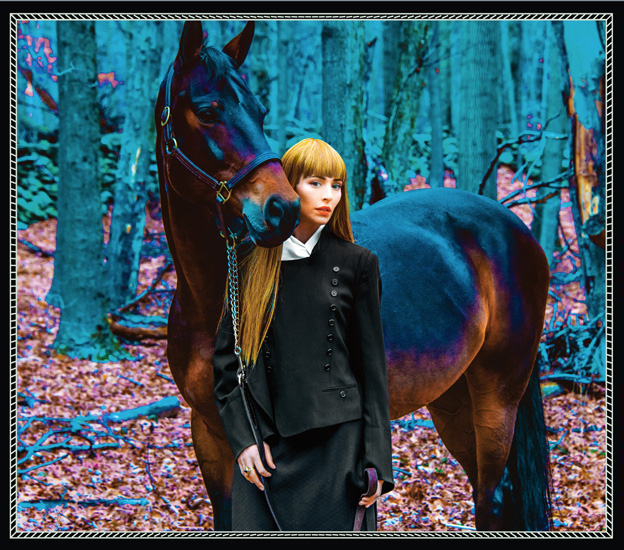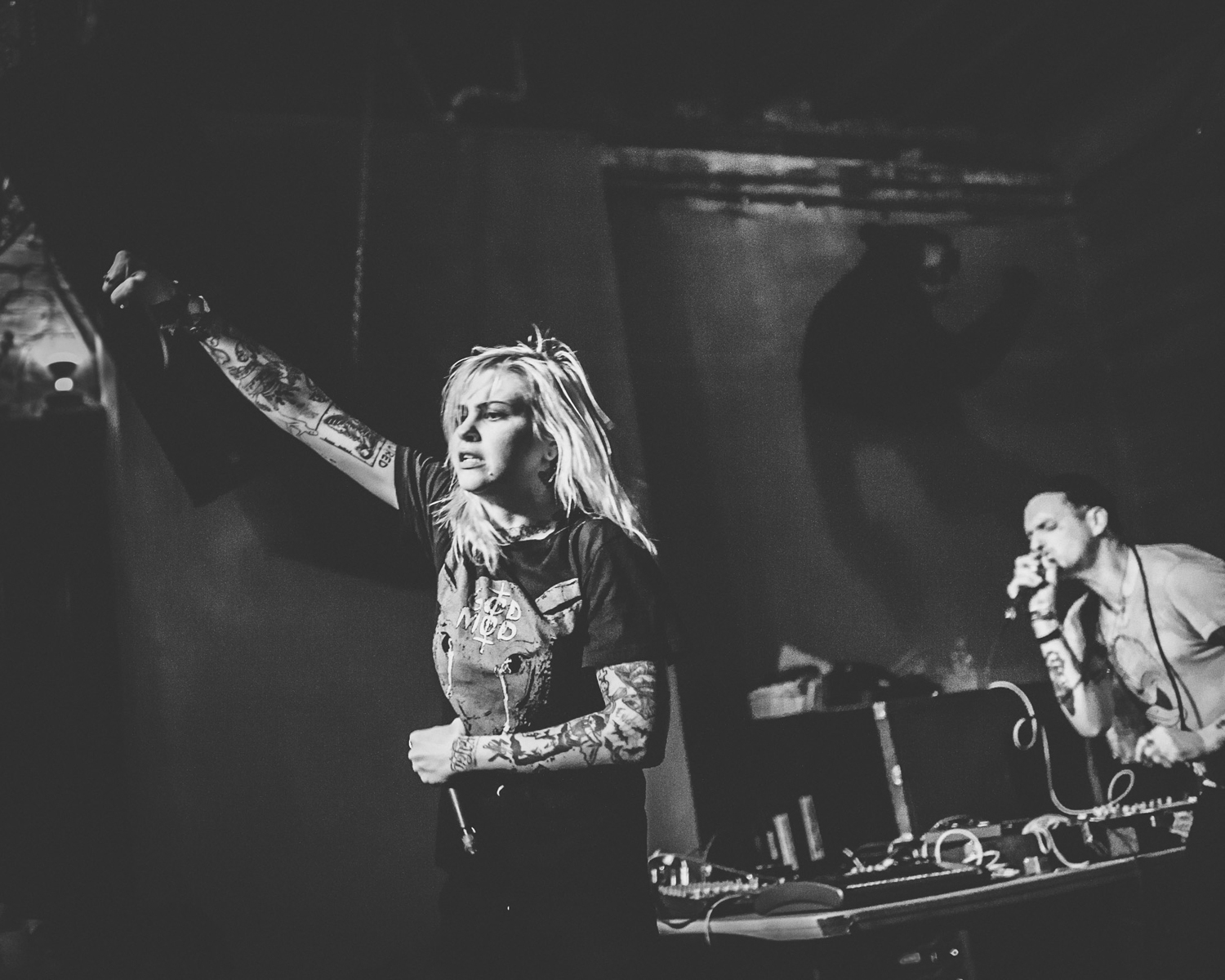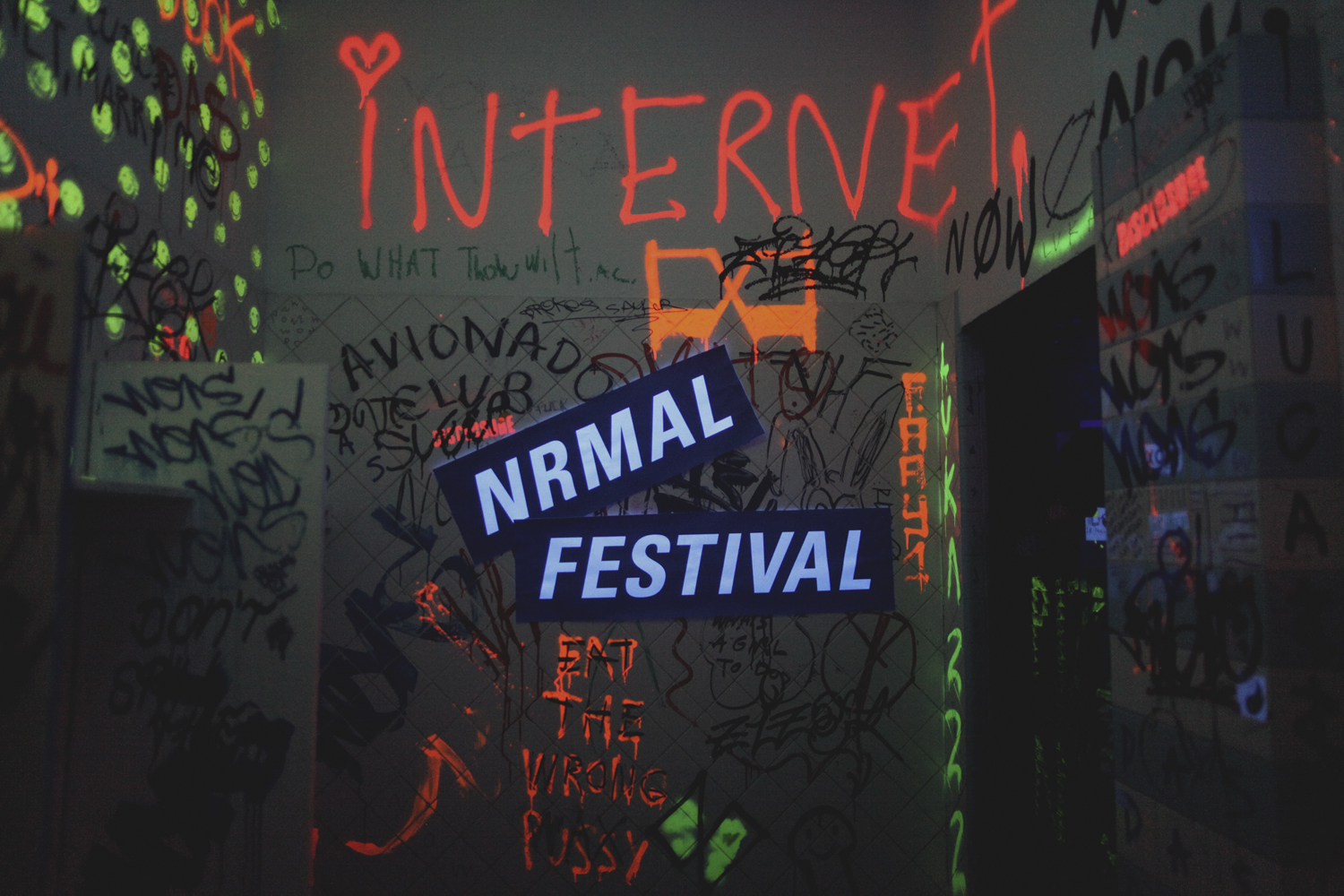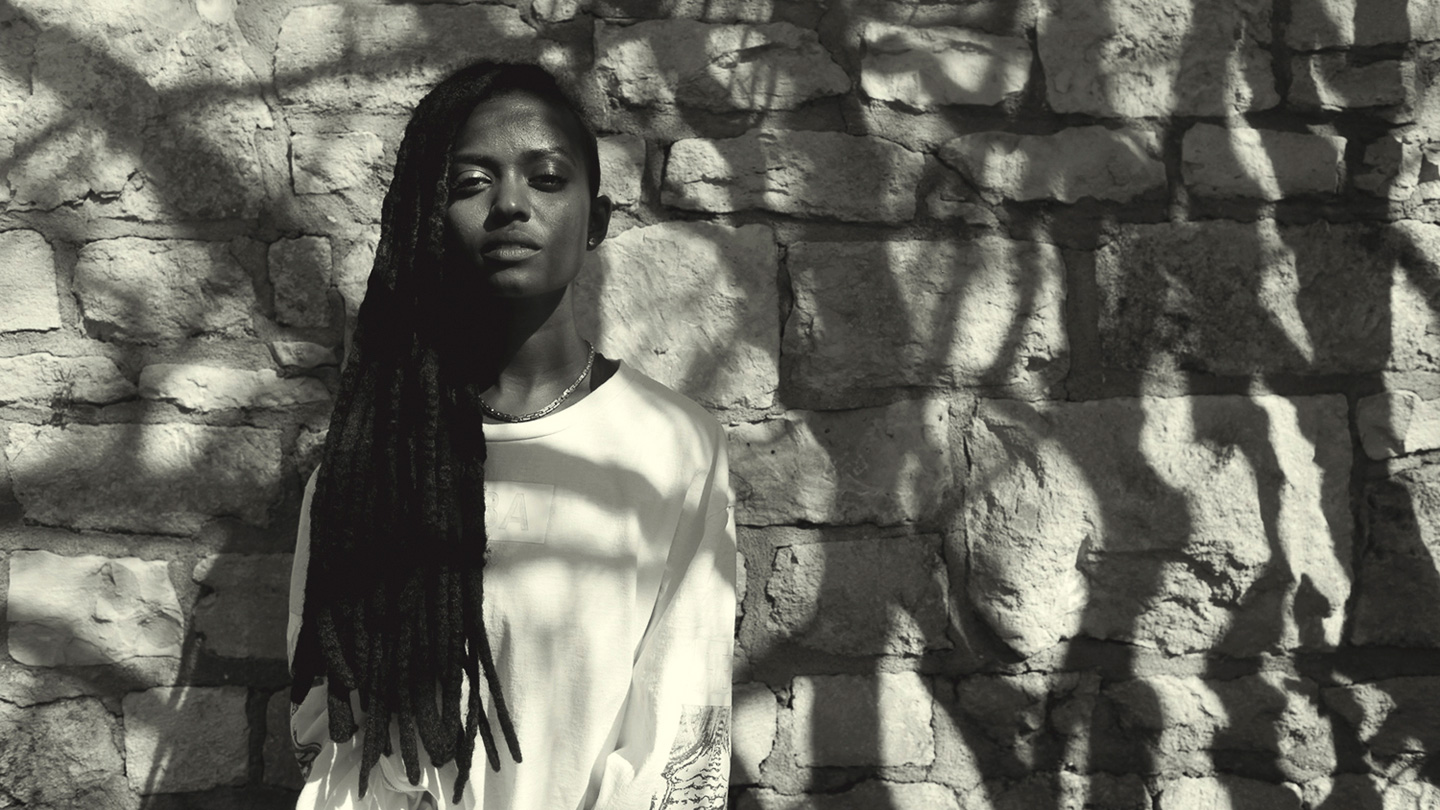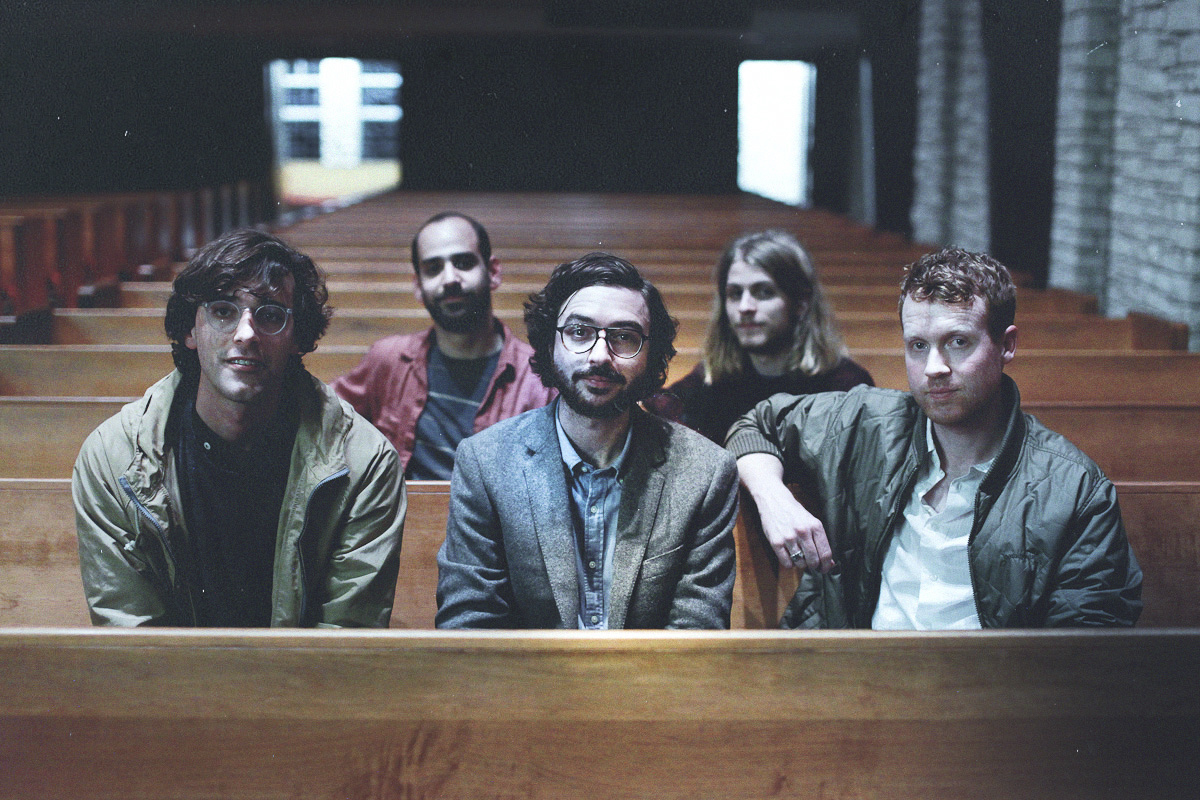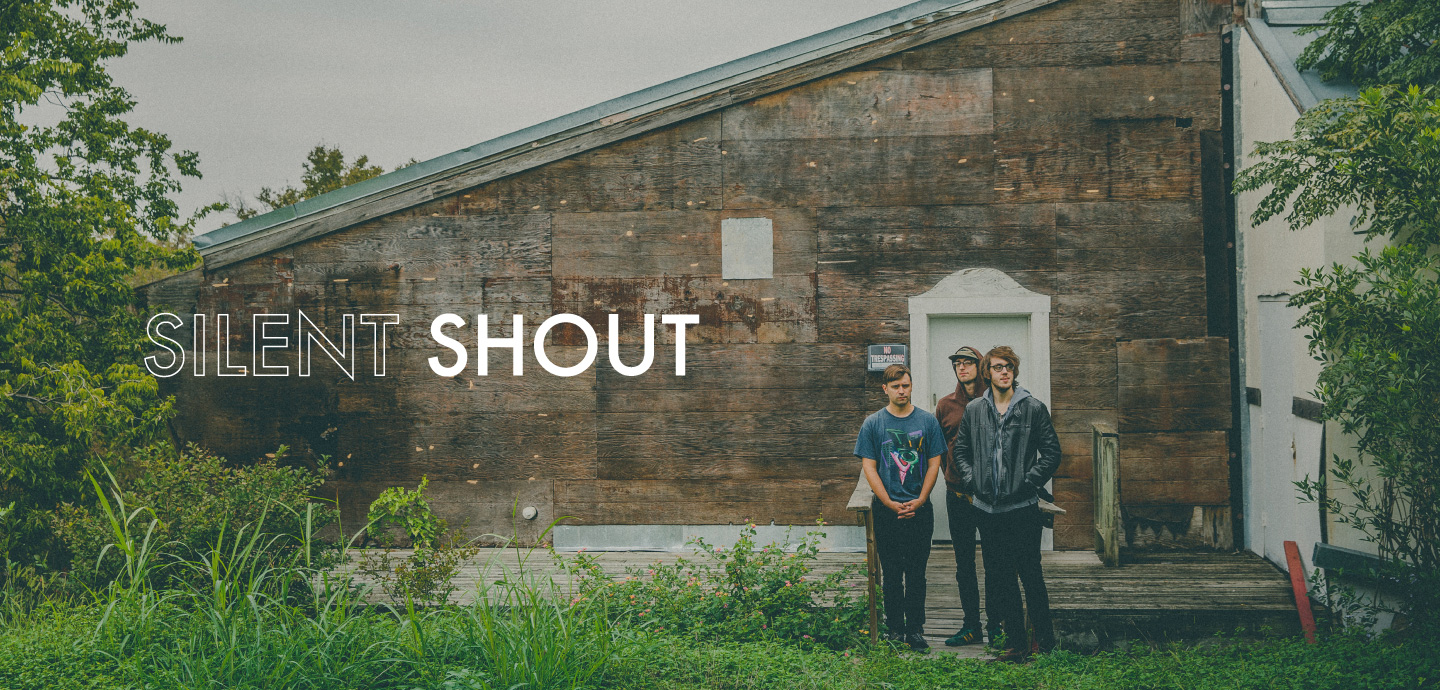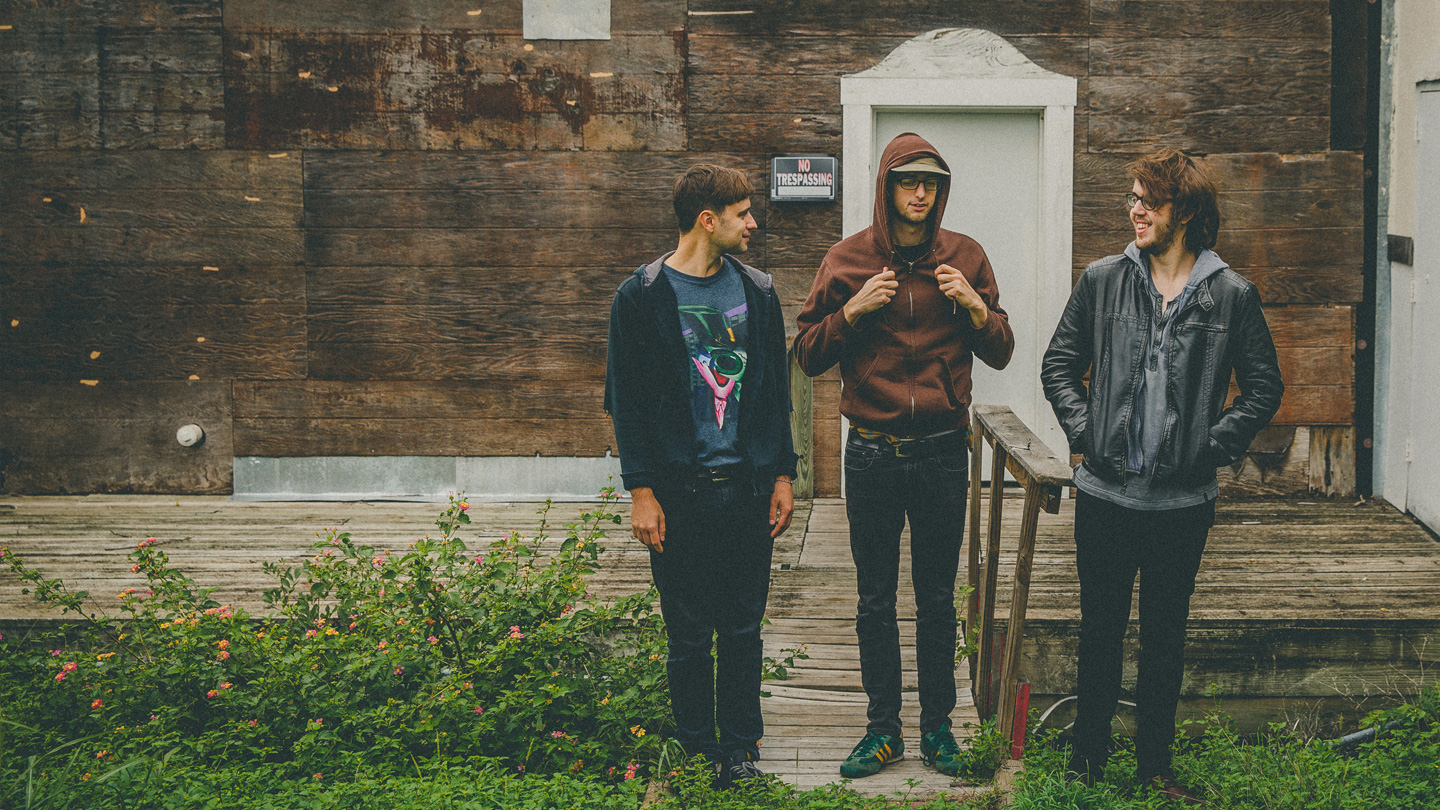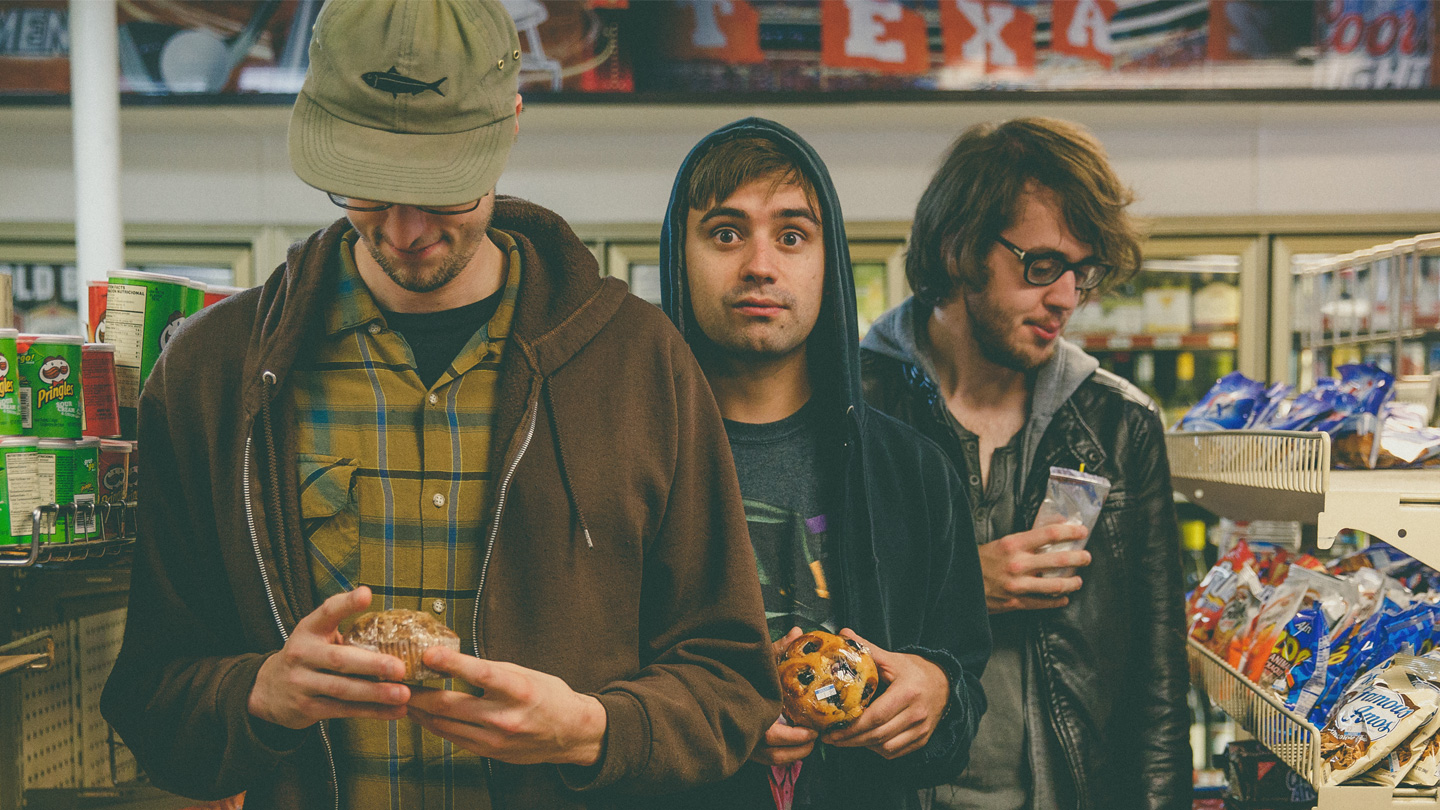![Rising: Frankie Cosmos]()
Photo by Sam Clarke
Frankie Cosmos: "Birthday Song" on SoundCloud.
Greta Kline's affinity for the winking amateurism of K Records comes sharply into focus as I enter the Greenwich Village apartment she shares with her boyfriend and bandmate, Aaron Maine. The living room walls are dotted with original artworks—vibrant paintings by Maine, crayon sketches ripped from notebooks, a tiny needlepoint work—most of which depict Frankie and Ronnie, the alter egos that Kline, 19, and Maine, 25, devised for one another two years ago, which have also been recurring lyrical cross-references on their records. Instruments are cast about the room, as are cardboard boxes housing a just-arrived shipment of Maine's own 2013 album as Porches., Slow Dance in the Cosmos, on which Kline plays. Perhaps owing to their sharp New York dispositions, Maine and Kline's twee eccentricities never seem fey. They embody a clever, muted charm.
A small book of poems by Kline's spiritual forebear Frank O'Hara rests in clear view on the kitchen table, alongside a chessboard and just underneath a pinned-up Bowie record. Maine's deep singing seeps out from the bedroom as Kline tells me about the imaginitative musical world she's created over the past few years as Frankie Cosmos. On Bandcamp, she has posted upwards of 45 collections of sparse, home-recorded folk-pop songs that mine the little hurts of everyday New York life—a bus that splashes her with rain, a subway transfer that comes between her and a friend, a sleepy train ride. Songs are set in museums, at Grand Central, at the DIY Brooklyn venue Death by Audio. They capture intimate bits of sad awkwardness and biting self-loathing, fed by sharp, witty intellect; one of the earliest Frankie records was called much ado about fucking. "If your butt touched my butt, would you be like, 'so what?'" she sings on cult-fan favorite "Ronnie Ranaldo", "or would you think it was cool?" Given such lines, I am only slightly surprised that Kline speaks through consistent bouts of soft laughter—despite the fact that most of the misery-soaked songs on her 17-minute proper debut album, Zentropy, were written in 2012, the day after the passing of her beloved dog Joe Joe, who is immortalized on the record's cover.
![]()
Kline grew up in an artistic Manhattan household, the child of actors Kevin Kline and Phoebe Cates. She was home-schooled for most of high school, and spent nights exploring New York by way of underground rock shows. It was just north of the city, though, in Westchester, where the supportive local scene of home-recorders felt most inspiring. The community surrounding Purchase College introduced Kline to the young men who run micro-label Double Double Whammy, which releases Zentropy this week. "When the label agreed to do it, I was like—'Guys, this is not economic, I only have 15 fans!'" Kline says, explaining her bewilderment that pre-orders of the record had recently passed 300.
In September of 2012, Kline moved into her current apartment (owned by a relative) for its proximity to New York University, where she was set to start studying poetry. After freshman year, though, recording and shows took over, and Kline is currently facing the decision of dropping out, going back, or figuring out a loophole while touring through spring and summer. "We're like, 'What's going to happen?'" she says of her bandmates, who are also struggling to decide whether to quit their day jobs to tour. "Are we going to, like, give up... life? We'll see!" She's quick to clarify that she's no slacker: "I'm very academic," Kline says. "I made the Dean's List." She says she would like to attend college as a cool 30-year-old "who stands out and is like, 'Yeah I'll buy you guys beer.'"
We discussed the meaning of her moniker, the similarities between Frank O'Hara and Beat Happening, and how to love New York while drawing from its infinite points of inspiration.
"I hope people hear my songs and realize that
writing music is kind of easy, or that taking your
sadness and turning it into a beautiful song is worthwhile."
Pitchfork: What kind of music did you grow up listening to?
Greta Kline: My parents listened to a lot of James Taylor and Hall and Oates. My mom and I used to listen to Liz Phair and Indigo Girls a lot in the car, too. When I was 10, my dad taught me my first three chords on guitar, for "You Can't Always Get What You Want". And my older brother Owen was really hip—he showed me the Moldy Peaches and Jeffrey Lewis. The first song I wrote, in fifth grade, was totally ripped from Jeffrey Lewis. My aunt's boyfriend gave me bass lessons, and I played drums for a year in sixth grade. Around seventh grade, I got a guitar and forgot everything else. I played piano for a lot of my childhood and stupidly quit. I wish I hadn't—I could have been a great classical pianist!
Pitchfork: Your first songs as Frankie Cosmos were posted around the end of 2011. Before that, you went by Ingrid Superstar. What's the difference between Frankie Cosmos and Ingrid Superstar?
GK: The main difference was that I started dating Aaron. He was a big influence. Also, I found out that Ingrid Superstar was a real person and figured I had to change the name. Aaron made up the name Frankie Cosmos and I was like, "This is me." I immediately felt like I was going to have this name forever. It was a change in emotion. I was really inspired, and not so sad.
Pitchfork: What about Aaron was so inspiring?
GK: I've been listening to Aaron's music since I was 15. He made these great albums in high school, and the first time I heard his music I cried, thinking it was so good. I stole stuff from it and thought he was a genius. From afar and up close, I see that he is a real folk artist. I don't necessarily mean folk music. I mean like: It's our destiny to make this music. And Aaron is my first muse who I'm allowed to admit is my muse. Ingrid Superstar had a lot of imaginary boyfriends, but Frankie Cosmos has a real one. That's the main difference.
Pitchfork: The cosmos is infinite and limitless, and your discography can feel pretty expansive, too. Were you trying to imply a connection?
GK: It was more about how our love is infinite. We both came up with funny names for each other. Mine, for Aaron, was Ronnie Mystery. We immediately started dating and didn't know each other that well, but we felt like we did. There was this unending mystery to the other person, infinite things to learn about them. Our love is very cosmic, like a weird lightning strike. I don't know how to explain it. I feel like the cosmos implies mystery, or infinite secrets.
Pitchfork: Your name "Frankie" references the poet Frank O'Hara. What about his writing resonates with you?
GK: Right when we started dating, I bought Aaron this really big book of Frank O'Hara poems, so he started calling me Frank. I had a weird introduction to Frank O'Hara. I heard an audio clip of "Adieu to Norman, Bonjour to Jean and Jean-Paul"—which starts "It is 12:10 in New York"—on some kid's website, and I remembered it and wrote it down. I was obsessed with this poem, but I didn't know who it was by. I never thought to Google it because I don't understand how computers work; I still don't have a smartphone.
A year goes by, and this girl I knew from an art class sent me a different O'Hara poem. It immediately reminded me so much of the other one—his voice was so distinct and strong that I recognized it. I finally Googled it and realized the poems were by the same guy, and immediately went out and bought this huge book of Frank O'Hara poems and was obsessed with him and read the entire thing front-to-back when I was 15.
Pitchfork: He takes really fine details from New York City life and incorporates them into his poems in a way that is romantic. I feel like your music does that, too. What do you want your songs to capture about New York life?
GK: All of his poetry was coming from a place of mundane New York life—he wrote Lunch Poems on his lunch break everyday—but there's so much more there. There's so much depth to the streets of New York. I'm sounding really pretentious here, but there are a lot of places you can go from just observing everyday life, which he does really well. I was thinking about New York today and realized how much I hate walking around in the winter and how much I dread getting on the train. When I was younger, my view of New York was really wide-eyed and excited. I've lived here all my life, but when I was 15 my parents were like, "Yeah, you can go on the subway by yourself, you can do whatever." Everyday I would get on the train and go somewhere to just walk around. My brother and I were like, "New York is so big! There are so many places we can go!"
My relationship to New York has changed a lot, but I try to preserve that attitude. I feel lucky to live here. A lot of times you walk through the city and don't notice that you're in a really beautiful neighborhood, or that you're passing a beautiful building. It's nice, as an exercise, to keep aware that you're in a really lucky place. Writing songs about it is a really useful way for me to love New York more, and stay observing it, and not just zone it out. I'm trying to do what Frank O'Hara did and remind myself there there's a lot of good stuff. I write about New York for my own mental health.
Pitchfork: Are there any other ways that growing up in the city influenced your approach to songwriting?
GK: I started going to rock shows at a really young age, and seeing other young people make music definitely influenced me. You meet a lot of people in New York who are different than you, and have different stories, so I see everyone as super individual. I feel like I can be infinitely inspired because New York is huge. There's always a new street I can go to, or a billion new people who I haven't met that I could write about. New York is very humbling.
"My music doesn't sound punk, but I see it as a punk action."
Pitchfork: There is a line on Zentropy where you sing, "I try not to be pretentious"—does that desire come from being around people in the city?
GK: I learned the word "pretentious" at a very young age. It messed me up. [laughs] I was like, "Oh no! I don't want to sound... pretentious!" My brother was 13 when people started telling me that he was a "hipster." I was 11 and thought it was so stressful, like, "How do you not be called that?" It seems like the kind of thing that doesn't happen outside New York. There are some people I've met and it's stressful just speaking to them, because they're really pretentious and I don't know how to talk to them without being pretentious back.
My new record is being called "indie pop," which is fair, I'm not going to deny that it's poppy—but [sarcastically] I see it more like French pop... just kidding. I like that people sometimes ask if I'm from the suburbs. It's a way better vibe over there; everyone is purely nice, there's nothing fake going on. I like to take on the folkie attitude. People's music. Stuff that's not glossy. My favorite musician is Michael Hurley. I don't know if folk and outsider artists are necessarily the same, but I see them as the same. Like, Bob Dylan is that. I consider myself punk, too. Obviously my music doesn't sound punk, but I see it as a punk action.
Pitchfork: I heard that you were also an intern for Showpaper, the all-ages show-listing newsletter that is distributed around NYC. How did that influence your relationship to the Brooklyn scene?
GK: Before I was making music of my own, in the summer of 2009, between ninth and 10th grade, I would hang out at the old [Queens DIY venue] Silent Barn five days a week with a group of my friends, all booking shows. Showpaper is awesome—we would roam the streets and find a Showpaper in a cafe and then go to a show that night.
Somehow, our motley crew of teen idiots got the job of funding the paper by booking all of the benefit shows. I do not know why they allowed two 15-year-olds and three 17-year-olds to do this, but it was great. We booked a Parts & Labor show at Market Hotel that was really good. At the time, the people who lived at Silent Barn were getting arrested a lot, and I learned how hard booking shows is. But it was nice to get an inside view of the music scene and see how it worked.
![]() Photo by Allyssa Yohana
Photo by Allyssa Yohana
Pitchfork: K Records comes up a lot with your music, too.
GK: I started listening to Beat Happening and Calvin Johnson when I was 13 and freaked out. It changed my life! That was definitely a catalyst, where I thought: "I can make music!" I liked the idea that you don't have to be super well-trained to make great art. I read their chapter in Our Band Could Be Your Life and learned about how they played on yogurt cans and I loved how they had this weird culture where they would wear pajamas and play with yo-yos. My friend and I started baking brownies and bringing them to shows, in total Beat Happening style. I realized music could be this fun thing and the whole point was to go to shows with friends and be supportive and eat treats and wear pajamas. I wore my pajamas almost every day of ninth grade. I was a weirdo.
Calvin and I played a show together at Purchase and he was exactly how he was supposed to be: weird and playful. I was so nervous. It's amazing that he is 40 or something and has the same attitude. The K Records attitude is a lifelong thing. I am into that. It's punk, but that's not punk music. Beat Happening will never get old. It's similar to Frank O'Hara—you can hear the voice so strong in the writing. That is really skillful—people who can write in the same voice for a long time but have each song be interesting and new.
"If I feel hurt by something that happened or vulnerable in a situation, and then I write a song about it and put it out,
I'm taking power over that situation."
Pitchfork: You use Bandcamp in a way that is pretty unique and diaristic. Is there anything in particular that you wanted to do with Bandcamp as a medium?
GK: I made the Bandcamp when I was trying to play shows, even though my music definitely was not ready. I had a friend who would pretend to be my manager and email Cake Shop and Death by Audio and be like, "Can Ingrid Superstar play?" But there was nothing for them to click on, and everyone said no or didn't respond. If you make a Bandcamp, you seem like a real band, so I made one and put up everything I had made, and pretended they were albums. I gave them titles and made weird art.
I didn't go into it being like, "I'm going to be super prolific!" I don't think I am. It's funny how that's the thing a lot of people are latching onto: "She has 45 albums!" I feel like only 12 or 15 of them are great, and it's the most recent ones. Everything before that is just weird noise music. I didn't have the attention span to write a song, so I would record notes I came up with and call it a song. It was such a bad idea, but it made people think that I'm really prolific.
Pitchfork: When you think about Frankie Cosmos, do you consider the focus to be more on individual songs and albums, or your discography as a whole?
GK: I definitely think about the body of work. I have an obsession with archiving everything. I have all these journals dated and numbered really particularly. I never tape over anything on my camcorder. I don't love some of the early stuff on my Bandcamp, but it's important for me to see the evolution of my writing. The individual songs and albums are all important to me, but together—that is a huge chunk of my life. The fact that it's public doesn't matter to me. I mean, I never thought anyone would hear it. I did it basically because I was scared my hard drive would crash. Every time I put out a Bandcamp album, I'm like, "This is the best one!" I plan on keeping it as a huge lifelong project.
Pitchfork: Do you ever feel like reluctant about the fact that there's so much personal stuff out there?
GK: Once in a while I'll change the names to protect the guilty. There's a lot of secrets in my life, and it's scary to imagine someone figuring them out. But I don't see it as a problem that they're personal. It's empowering. If I feel hurt by something that happened, or vulnerable in a situation, and then I write a song about it and put it out, I'm taking power over that situation. Writing a song is my way of dealing with my emotions.
"I love being healthy and getting enough sleep.
I guess that's dorky, but I'm not seeking out anything
harmful to my body at this point in my life. I want to stay sharp."
Pitchfork: You made up the word "Zentropy"—what does it mean to you?
GK: The definition I'm set on is: dissent into zen-ness. Accepting your surroundings and being one with them. I like zen as a concept. My parents really want me to take a Transcendental Meditation class. I know a couple people who have said it changed their lives. I'm a very neurotic, crazy person, so I think meditation would be good for me.
Frankie Cosmos: "Owen" on SoundCloud.
Pitchfork: A line that stood out to me on the album was, "All my friends are depressed." Why are all of your friends depressed?
GK: All of my friends went to college and were depressed because they hated it. I was also feeling a little jealous of Aaron's friends. They go out and drink and hang out. And I love my friends, but they're like me: They want to stay home and go on the computer and read a book and make art. They don't want to go out. So I was comparing the lifestyles of our various friend groups. In Porches., I'm the only person who doesn't drink; I love being healthy and getting enough sleep, I guess that's dorky, but I'm not seeking out anything harmful to my body at this point in my life. I want to stay sharp. I'm definitely not your average college kid who wants to get drunk, which makes me very uncool in a party situation.
Pitchfork: There's a line on Zentropy where you sing, "My dad is a fireman." What did you mean by that?
GK: Well, it's not true. My dad used to travel a lot for work when I was younger, so it would just be me and my brother and my mom. The year I wrote that song, he was gone for like eight months out of the year. I was walking down the street and I saw a little girl hanging out at the fire station with her dad, and I thought, "That is a really sad job for your dad to have, because you're constantly worried about him putting his life on the line. I used to always worry when my parents were on planes. I'm obsessed with my parents; I love hanging out with them. The song is just a story, but I felt like I related to it. I'm definitely a crybaby.
Pitchfork: I feel like my mom would be worried if I posted so many albums full of sad songs online.
GK: My mom calls me all the time and says that; she was a little concerned. But, when I first started making music, she was like, "Can I sing on it?!" She would sing harmonies and I would tell her what the songs were about. I'd be like, "This song is about how I don't want to go to Brown because it's really far away so I wrote this depressing song."
Pitchfork: Your music reflects so much inner sadness. But, ultimately, do you want it to be uplifting?
GK: Everyone on the internet is sad. Why else would they be on the internet? I mean, I'm not super-sad. That stuff is kind of tongue-in-cheek. Even if it's not uplifting, I think that for young sad girls on the internet to hear another sad girl their own age being really productive and making songs is a positive influence. Instead of just being depressed, do something with that depression. If anything, I'm hoping that I can inspire people to do that. I hope people hear it and realize that writing music is kind of easy. Or that taking your sadness and turning it into a beautiful song is worthwhile.





 The New Christy Minstrels: Land of Giants
The New Christy Minstrels: Land of Giants



















 Photo by Allyssa Yohana
Photo by Allyssa Yohana
